Learning Berthoud’s history
Area children learn about local history at Little Thompson Valley Pioneer Museum
By May Soricelli
The Surveyor
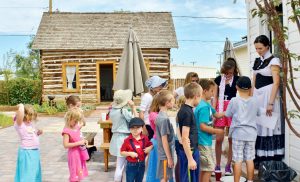
After completing the mornings chores on the Meining homestead the children line up at the sound of the teacher ringing the school bell. Boys and girls eagerly took their places in separate lines.
May Soricelli / The Surveyor
The history of pioneering in Berthoud in the 1880s was brought to life for young children in the “Summer History Day Camp” hosted by the Berthoud Historical Society. Children who attended the day camp experienced an immersion into another time when they arrived each day at the Little Thompson Valley Pioneer Museum July 21-25. The exploration of period-relevant activities and lessons gave campers an insight to the world of school and life a hundred years ago. There were a total of 12 participants ranging in age from first to fourth grade, including four boys and eight girls.
The museum’s newly transformed courtyard was home to the structures that played a prominent role in lively education for the group. The Meining Cabin was both an activity space and an historical lesson in local pioneering. The children learned about the history of Charles Meining and his life as a pioneer with his family, and what their life might have looked like as homesteaders living off the land. The one-room Meadow Hollow School house played a major role in teaching students the functions of school more than one hundred years ago.
Museum director Karen Lloyd-D’Onofrio feels that they “were very lucky” to have Lisa Petrovich lead the camp this year. “I knew that she loved history and museum education. I also knew of her love for dressing up in period costume. She seemed like the perfect choice for us and the campers loved her,” said Lloyd-D’Onofrio.
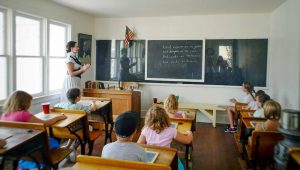
In the sunny Meadow Hollow School House, Ms. Petrovich leads the class in their mantra for the day, “Kind hearts are the garden, kind thoughts are the roots, kind words are the flowers, kind deeds are the fruits.” Recitations were a practice used to teach the children through memorization of text and presentation to others.
May Soricelli / The Surveyor
Lisa Petrovich, who received her M.A. in History from the University of Colorado, took on the role as educator and artfully carried out the given lesson plans by incorporating her passion for the past in her conveyance of historical facts and events to the children.
“The camp was an amazing experience because of the really great campers and particularly because of the 1874 cabin and 1919 one-room schoolhouse in which we got to spend time in,” said Petrovich. “It gave me the chance to dress up and transport myself back in time through the activities we did. I had never made butter or corn-husk dolls, nor had I ever hand-drilled a piece of wood.”
Several volunteers helped coordinate and assist in the day’s educational activities as well as taught specific lessons. LaurelAnne Hardy and Evie Wood helped Petrovich set up every morning and support the lessons. Dick Magee, one of the Pioneer Museum docents, taught woodworking. Ginny Peabody came in to talk about life on the pioneer trails and native american influence in the west in the 19th century.
“Without volunteers willing to share their time and passion for history with the campers, our educational programs wouldn’t be able to run,” said Lloyd-D’Onofrio.
Today’s modern contraptions were long forgotten as children engaged with hands-on activities such as making watering cans and developing a routine of watering the pioneer garden, fetching buckets of water for daily use, making hand-made lemonade, trail mix and butter, and creating personal daily journals for keeping record of each day’s special events. Children received presentations on how to make wooden tops and corn husk dolls based on the pioneers lack of store bought toys and the use of available materials on the homestead.
“We designed the curriculum so that campers could experience the hardships of daily life on the Plains even if for only three hours a day. Of course, we built in time for our campers to have fun too playing games that pioneer children might have played,” said Lloyd-D’Onofrio.
One distinguishing factor that was highlighted was the separation of gender roles in the early days of Berthoud education. For example; while the young ladies at camp learned the art of needlework and laundry cleaning, the young gentlemen in attendance studied encounters with snakes and wildlife, and learned about the challenges of mining for gold.
The enactment of games such as jump rope, or circle games, and studies such as arithmetic, and calligraphy taught students the difference in entertainment and education for the pioneers in comparison with today’s methods.
“While the campers had fun making their journals, corn-husk dolls, and spinning tops, I think they most engaged in the more routine activities from the time period, such as watering the gardens every morning and spending time at school,” said Petrovich. “The students really grasped the idea that frontier life was challenging, often uncomfortable, and routine, but could still be fun and rewarding.”
Due to the success of of the camp and how well the children engaged with the event the Berthoud Historical Society looks forward to hosting the event again next year.
“We were very surprised by how quickly the camp sold out this year.The details had been posted less than a month before we had to start turning people away. We had a good mix of campers both boys and range in ages and they did a fantastic job. Their show and tell at the end of the camp was memorable and the families really enjoyed sharing the successes of their campers,” said Lloyd-D’Onofrio.
- September, 02 2021

Enjoy the Great Outdoors
Have you noticed the angle of the sun dropping to the south? When the nights...
- May, 08 2020
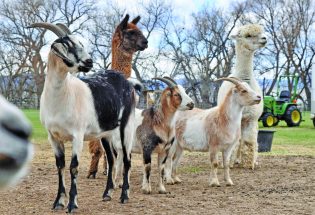
Local Farm animal sanctuary offering ...
Courtesy photo - Good Life Refuge's "welcoming committee" eagerly awaits the return of guests to...
- January, 17 2020

Man sentenced to six years for firing...
By Amber McIver-Traywick The Surveyor Monday, Jan. 13, the Longmont man who was arrested for...
- April, 26 2019

Thompson teachers to receive pay raise
By Dan Karpiel The Surveyor Once it is formally agreed upon by both sides next...
- March, 01 2018

The 2018 precinct caucus will take pl...
By Amber McIver-Traywick The Surveyor If you are currently a registered Democrat or Republican in...
- February, 26 2021
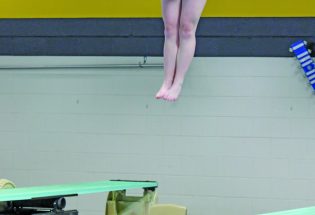
Berthoud swimming peaking at the righ...
In their first two years as a team, the Berthoud High School (BHS) girls swimming...

POLICEBLOTTER
Community News
Northern Water sets C-BT quota at 70% for 2024
Community News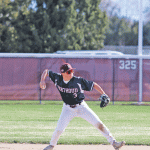

Emotions run high during Revere Property hearing
Community News
Snowpack at 119% above normal
Community News

Karspeck to serve third term as Berthoud mayor
Community News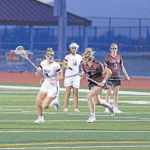

OPINION – No bitchin’ allowed
Community News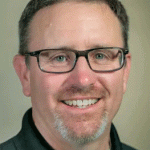
Roy Tripi to become principal of BHS on July 1
Community News
COMMUNITY CALENDAR:
Community Calendar – add an event
Homestead Fine Art Gallery First Fridays OPEN HOUSE
03 May 4:00 PM - 7:00 PM
Homestead Fine Art Gallery First Fridays OPEN HOUSE
07 Jun 4:00 PM - 7:00 PM
Homestead Fine Art Gallery First Fridays OPEN HOUSE
05 Jul 4:00 PM - 7:00 PM
Homestead Fine Art Gallery First Fridays OPEN HOUSE
02 Aug 4:00 PM - 7:00 PM
Homestead Fine Art Gallery First Fridays OPEN HOUSE
06 Sep 4:00 PM - 7:00 PM
Homestead Fine Art Gallery First Fridays OPEN HOUSE
04 Oct 4:00 PM - 7:00 PM

